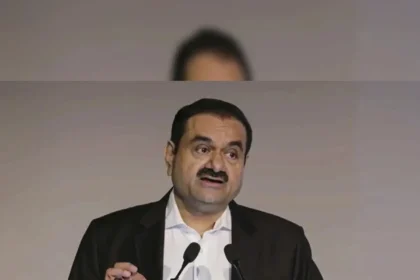Madhya Pradesh Job Aspirants Face Errors and High Fees, Feel Cheated by Recruitment Process
In the heart of Bhopal, in a cramped 10×10 room tucked away in the Ashoka Garden locality, the harsh reality of Madhya Pradesh’s job aspirants comes alive. Chandan Lodhi from Vidisha and Ajay Singh Maravi from Dindori, two hopefuls chasing the dream of government employment, have turned this modest room into a kitchen, study, and bedroom—all in one.
Their reality speaks volumes about the broader struggle thousands face across the state. A cement bag mat doubles as their bed at night after the books are cleared. A lone stove prepares their meals, and a handwritten quote from Dr. B.R. Ambedkar hangs above—“Education is the milk of a lioness; whoever drinks it will roar.” Yet, as they both ask with quiet desperation: how can they roar when the very system meant to empower them is now their biggest obstacle?
Aspirants Penalized for System’s Mistakes
The latest blow comes in the form of increased fees to challenge errors in exam questions. The Madhya Pradesh Employees Selection Board (ESB), formerly Vyapam, has hiked the fee to raise objections from ₹60 to ₹185 (inclusive of GST). The irony is bitter—students must now pay for the board’s own mistakes.
“The money I receive from home is barely ₹2,500-3,000 a month,” explains Chandan. “Out of that, we pay rent, buy rations, pay for coaching—and now we’re being asked to pay ₹740 if four questions are wrong. Why are we being penalized for their negligence?”
Years of Preparation Undermined by Delays
Abhishek Singh, another aspirant from Bhopal, recounts how he waited for over two years for the results of the MP Police Recruitment Exam—only to miss the cut-off by 1.5 marks.
“People say it’s just a mark and a half, but that delay cost me two years of opportunity,” he laments. “If the results had come on time, I could have prepared for other exams. But that window closed while I waited.”
To make matters worse, aspirants are not informed about questions that have already been challenged, leading many to unknowingly pay multiple objection fees for the same issues. “It feels like we’re part of a subscription service, not a merit-based selection process,” says one frustrated candidate.
An Expensive Process with Little Accountability
Between 2016 and 2024, ESB conducted 112 recruitment exams that saw over 1.5 crore applications. During this period, ₹530 crore was collected in exam fees, ₹278 crore was paid to online testing agencies, ₹58 crore earned through interest from banks, and ₹297 crore transferred to the Directorate of Public Instruction for the Scooty-Laptop Scheme.
Despite this, systemic inefficiencies continue to plague the process. Delays, errors in question papers, and the burden of fees fall squarely on the shoulders of job-seeking youth—often from economically weaker sections.
Political Promises, Unfulfilled
Ahead of the last state elections, former Chief Minister Shivraj Singh Chouhan had vowed that candidates applying for multiple jobs would only need to pay a single examination fee. However, that promise remains unfulfilled, adding to the growing disillusionment among young voters.
Hemant Katare, Deputy Leader of the Opposition, strongly criticized the government’s handling of job recruitment. “The state collects crores through exam forms. But when exams are cancelled or papers are flawed, students get no refund. Why is the youth being punished for bureaucratic incompetence?” he asked.
He added that rather than penalizing candidates, the government should impose fines on question-setters responsible for the errors.
However, Gautam Tetwal, Minister of State for Employment, dismissed the criticism as baseless political rhetoric. “The Congress is only interested in blaming. The BJP government is working efficiently and diligently,” he said.
A System Still Haunted by Its Past
The Vyapam scam may have rebranded itself as ESB, but for job aspirants, the name change has done little to restore trust. The deeply entrenched issues—delayed results, flawed exam papers, and excessive fees—persist.
Many students now view the entire system as designed more to extract money than to create opportunities. The sense of injustice is palpable, and the mood is increasingly one of fatigue rather than hope.
The Human Cost of Bureaucratic Failure
For now, in rooms like the one in Ashoka Garden, dreams continue to flicker dimly under the pressure of rising costs, unanswered objections, and unkept promises. The single stove that cooks their meals also serves as a quiet symbol of resilience.
“We just want a fair chance,” says Ajay. “Not charity. Not sympathy. Just fairness.”
Until that day arrives, Madhya Pradesh’s job aspirants will continue to fight a system that seems to test their endurance more than their knowledge.
Also Read : Siddaramaiah Responds to Kamal Haasan’s Remarks Amid Kannada-Tamil Language Controversy








